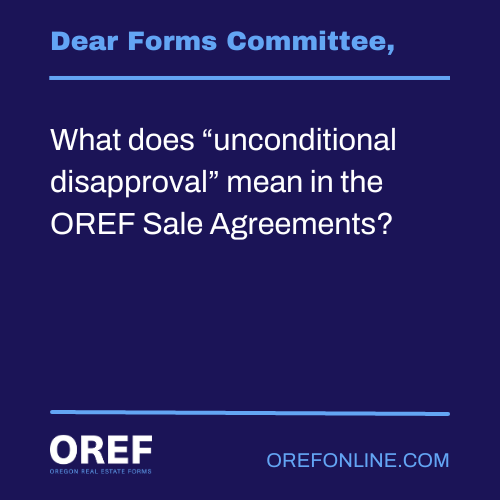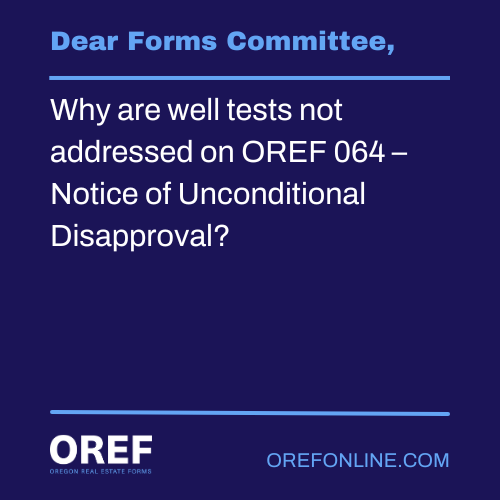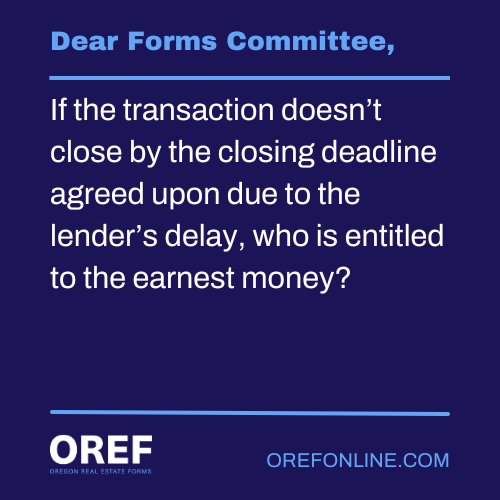Dear Forms Committee: What does “unconditional disapproval” mean in the OREF Sale Agreements?
The term “unconditional disapproval” is used many times throughout the OREF Sale Agreements. To disapprove of an item truly unconditionally (for example, verification of funds, condition of the property, etc.), the seller or buyer must disapprove of the item with no conditions attached.
Perhaps the easiest way to explain unconditional disapproval is to say what it isn’t. If the buyer said, “I unconditionally disapprove of the inspection report unless the seller agrees to fix everything disclosed in it,” that would be a conditional disapproval, not an unconditional one. If the seller said, “I unconditionally disapprove of the buyer’s verification of funds unless the buyer can prove that those funds are liquid,” that also would not be unconditional disapproval.
Any disapproval that has a condition attached is not unconditional. When a party wants to impose conditions, they cannot use the words “unconditional disapproval” Instead, they must give a truly unconditional disapproval before their contingency window closes. If they attach a condition to their unconditional disapproval, then they have not given unconditional disapproval and may end up proceeding with an unwanted result or purchase. The party must either unconditionally disapprove or request that the other party comply with the wanted condition. Using OREF 064 Notice of Buyer’s Unconditional Disapproval eliminates this problem by providing language that does not include conditions.
All comments and responses from OREF or its staff, managers, and volunteers are non-legal opinions made for general purposes. Each Forms subscriber must rely solely upon their Principal broker or personal legal counsel for specific advice and instruction. You and your client should independently confirm that the Form(s) you use are legally suitable for the purposes intended and that they are current with respect to all laws and regulations.




